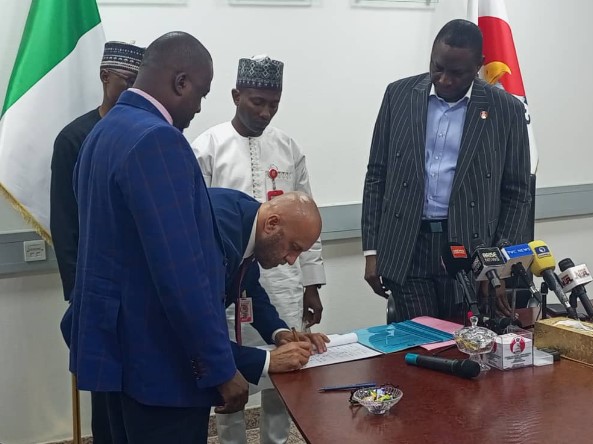The Economic and Financial Crimes Commission (EFCC) has handed over $180,300 and 53 vehicles fraudulently taken from Canadian citizens by Nigerian cybercriminals to the Royal Canadian Mounted Police (RCMP).
The assets were recovered through a joint operation between the EFCC and the RCMP, showcasing a growing international collaboration in the fight against financial crimes.
Speaking at the handover ceremony, EFCC Chairman Ola Olukoyede highlighted the importance of global cooperation in addressing financial crimes, which he described as a borderless and growing issue. He emphasised Nigeria’s commitment to combating such crimes, stating, “The Nigerian government does not tolerate financial crimes. We will pursue, investigate, recover, and ensure victims are restituted.”
The EFCC’s operations, which spanned several years, resulted in the recovery of significant assets, including $164,000 taken from a victim named Bogomas Elena, and $16,300 defrauded from another victim, Sandra Butler. The joint effort, dubbed “Operation Hot Wheels,” also led to the recovery of the stolen vehicles, some of which were traced back to vessels transporting them to Nigeria.
Micheal Wetkas, Zonal Director of the Lagos Directorate, explained that the RCMP had approached the EFCC in 2012 about stolen vehicles missing en route from Canada. Through collaborative efforts, the vehicles were traced and recovered. In addition, investigations revealed that the fraudster who scammed Elena used the stolen money to purchase real estate in Lagos, which was confiscated and returned.
Speaking on behalf of the Canadian authorities, Robert Aboumitri, Deputy High Commissioner of Canada, praised the EFCC for their professionalism and dedication in fighting crime. He acknowledged Nigeria as a key partner in the global fight against financial crimes and expressed hope for continued cooperation at an elevated level.
The handover ceremony underscores Nigeria’s commitment to combat financial crimes and demonstrates the strength of international partnerships in tackling such cross-border offenses.



